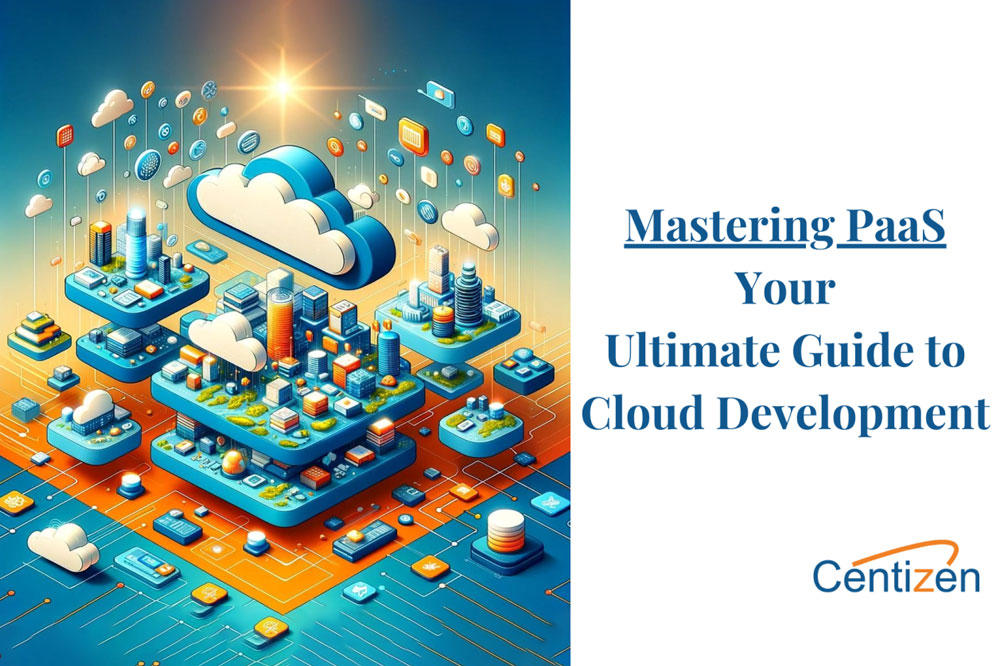Platform as a Service Explained: Navigating the World of PaaS for Streamlined App Development

Platform as a Service (PaaS) is a cloud computing model that provides a platform allowing customers to develop, run, and manage applications without the complexity of building and maintaining the underlying infrastructure typically associated with developing and launching an app. It’s a key solution for businesses looking to streamline development processes while minimizing overhead. Let’s delve into the various aspects of PaaS to understand its components, features, types, relevance, benefits, limitations, leading providers, selection criteria, and successful examples.
Differentiating PaaS from SaaS and IaaS
- PaaS (Platform as a Service): Provides a platform and environment to allow developers to build applications and services over the internet. PaaS includes infrastructure—servers, storage, and networking—but also middleware, development tools, database management systems, and more.
- SaaS (Software as a Service): Delivers software applications over the internet, on demand, and typically on a subscription basis. With SaaS, cloud providers host and manage the software application and underlying infrastructure and handle any maintenance, like software upgrades and security patching.
- IaaS (Infrastructure as a Service): Provides basic computing infrastructure: servers, storage, and networking resources on a pay-per-use basis. IaaS gives users the most flexibility and management control over their resources.
Components of a typical PaaS model
- Hardware and software infrastructure: The foundational layer that includes servers, storage, and networking resources.
- Middleware: Software that connects different applications and services.
- Development tools: Integrated development environments (IDEs), code libraries, and deployment tools.
- Database management: Services to manage database creation, storage, and access.
- Business analytics: Tools for analyzing data to make business decisions.
- Identity management: Services for authenticating and authorizing users.
Exploring the key features of PaaS
- Scalability: Easy to scale up or down based on demand.
- Development tools: Access to a suite of development tools within the platform.
- Multi-tenant architecture: Multiple users can share the same development application, with their data kept separate.
- Automation: Automated configuration, deployment, and management of applications.
- Security: Built-in security features, including network and application security.
Types of PaaS: Private, Public, and Hybrid
- Private PaaS: Deployed on internal servers and managed by the internal IT team, offering enhanced security and control.
- Public PaaS: Hosted in the cloud by PaaS providers, accessible to anyone.
- Hybrid PaaS: Combines public and private PaaS to balance between scalability, control, and security.
The relevance of PaaS in business operations
PaaS is increasingly relevant as businesses aim for agility, faster time to market, and efficient use of resources. It supports rapid development and deployment of applications, collaboration among distributed teams, and innovative practices like DevOps and continuous integration/continuous delivery (CI/CD).
Benefits and limitations of implementing PaaS
Benefits:
- Reduced development time and costs.
- Scalability and flexibility.
- Focus on development without worrying about infrastructure.
- Enhanced collaboration.
Limitations:
- Potential for vendor lock-in.
- Limited control over underlying infrastructure.
- Security concerns in shared environments.
PaaS providers: Who rules the market?
Leading PaaS providers include:
- Amazon Web Services (AWS)
- Microsoft Azure
- Google Cloud Platform (GCP)
- IBM Cloud
- Oracle Cloud
Selecting the right PaaS provider: Key factors to consider
- Compatibility and integration: With existing tools and services.
- Security: Compliance with industry standards and regulations.
- Scalability and performance: Ability to handle workload demands.
- Cost: Transparent pricing models.
10 detailed PaaS examples that did things right
- Heroku: Simplifies the deployment process, supports multiple programming languages.
- Google App Engine: Offers good integration with other Google services.
- AWS Elastic Beanstalk: Automates deploying applications in the AWS Cloud.
- Microsoft Azure App Services: Offers various services for building, deploying, and scaling web apps.
- IBM Cloud Foundry: Supports several programming languages and services.
- Oracle Cloud Platform: Offers a comprehensive suite of integrated, subscription-based services.
- Red Hat OpenShift: A container platform that integrates Docker and Kubernetes.
- SAP Cloud Platform: Focuses on enterprise applications and integrations.
- Cloud Foundry: An open-source platform, supporting multiple clouds and application services.
- Mendix: Focuses on rapid application development, with a strong emphasis on mobile applications.
Conclusion: Is PaaS the right solution for you?
PaaS stands out for businesses aiming for rapid innovation and efficiency in application development. By eliminating the need for extensive infrastructure management, it offers scalability, cost-effectiveness, and the agility to respond to market demands quickly. However, it’s essential to consider potential limitations like vendor lock-in and control over the environment. If your priorities align with swift development cycles and leveraging cloud technology while minimizing operational complexities, PaaS could indeed be the right solution for your enterprise.
Explore Centizen Inc’s comprehensive staffing solutions and innovative software offerings, including ZenBasket and Zenyo, to elevate your business operations and growth.
Centizen
A Leading IT Staffing, Custom Software and SaaS Product Development company founded in 2003. We offer a wide range of scalable, innovative IT Staffing and Software Development Solutions.
Contact Us
USA: +1 (971) 420-1700
Canada: +1 (971) 420-1700
India: +91 63807-80156
Email: contact@centizen.com
Our Services
Products
Contact Us
USA: +1 (971) 420-1700
Canada: +1 (971) 420-1700
India: +91 63807-80156
Email: contact@centizen.com






